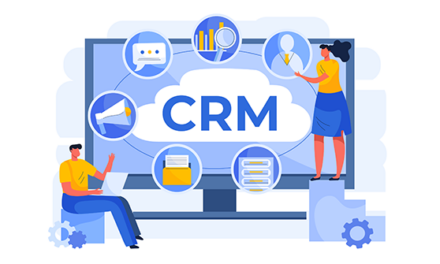Key Takeaways
- Phone-based sales for consultants refer to the process of conducting sales interactions and negotiations with potential clients over the phone.
- Utilize tools such as CRM systems, call tracking and analytics tools, virtual meeting software, and customer engagement tools to enhance phone-based sales.
- Prepare and rehearse sales scripts, structure phone conversations effectively, manage time efficiently, and consistently follow up to nurture leads.
In today’s fast-paced and digitally driven business landscape, consultants face the ongoing challenge of closing deals and securing new clients.
With a quick dial and a confident hello, they embark on a journey to close deals and conquer the business world.
One powerful tool consultant can use to achieve these goals is phone-based sales.
But how can phone-based sales be the secret weapon that helps these consultants seal the deal and close more clients?
To thrive in this competitive environment, consultants must leverage effective sales strategies to engage potential clients, understand their needs, and ultimately persuade them to choose their services.
This article will cover how phone-based sales can transform consultants into deal-closing dynamos.
So, get ready to dial into a world where conversations flow, objections crumble, and deals are sealed—all with the power of a single phone call.
- Definition of phone-based sales for consultants
- Importance of closing deals for consultants
- Benefits of phone-based sales for consultants
- Leveraging phone-based sales techniques
- Tools and technologies for phone-based sales
- Best practices for phone-based sales as a consultant
- Overcoming challenges in phone-based sales
- Conclusion
Definition of phone-based sales for consultants
Phone-based sales refer to the process of conducting sales activities and closing deals with potential clients primarily through phone interactions.
It involves using effective communication skills, active listening, and persuasive techniques to engage with prospects, understand their needs, present solutions, address objections, negotiate terms, and ultimately secure the sale.
It allows consultants to leverage the power of verbal communication to build relationships, convey value, and guide clients through the decision-making process.
Importance of closing deals for consultants
Closing deals is crucial for consultants as it directly impacts their success, profitability, and reputation.
Closing a deal means converting a prospective lead into an actual paying customer. It is the final step in the sales process that validates the consultant’s efforts, expertise, and value proposition.
Closing deals generate revenue, contributes to business growth, and help consultants achieve their financial goals.
Additionally, successfully closing deals establishes client trust, enhances the consultant’s credibility in the market, and may lead to referrals or repeat business.
Benefits of phone-based sales for consultants
Phone-based sales offer several advantages that can help consultants close more deals effectively:
Efficiency and reach
Phone-based sales enable consultants to reach a larger audience and engage with potential clients efficiently. In addition, consultants can conduct multiple types of sales calls daily, eliminating travel time and geographical limitations.
This scalability allows consultants to connect with a broader pool of prospects, increasing their chances of closing deals.
Convenience and accessibility
Phone-based sales provide convenience for both consultants and clients. Consultants can connect with clients regardless of location, reducing the need for in-person meetings.
This accessibility makes it easier for clients to participate in sales discussions without the constraints of time or physical presence, making the sales process more convenient for both parties.
Personalized interactions
Phone-based sales allow consultants to have direct, one-on-one conversations with clients. This personalization creates a deeper level of engagement and enables consultants to understand client needs, pain points, and objectives more effectively.
Consultants can tailor their approach, messaging, and solutions to each client, building rapport and increasing the likelihood of closing deals.
Cost-effectiveness
Phone-based sales eliminate the expenses associated with travel, accommodations, and other costs related to in-person meetings. This cost-effectiveness allows consultants to allocate their resources efficiently, focusing on lead generation, follow-up, and deal-closing activities.
Consultants can offer competitive pricing while maintaining profitability, making phone-based sales an economically viable approach.
Flexibility and adaptability
Phone-based sales offer flexibility in scheduling and adapting to client’s preferences. Consultants can adjust their communication style, pacing, and messaging to suit individual clients.
This adaptability enhances the consultant’s ability to connect with diverse clients, cater to their specific needs, and effectively address objections or concerns that arise during the sales process.
Trackability and analytics
Phone-based sales can be supported by technology tools such as customer relationship management (CRM) systems and call analytics. These tools allow consultants to track interactions, manage sales pipelines, and gain insights into the effectiveness of their sales efforts.
Consultants can analyze data, measure performance metrics, and make informed decisions to optimize sales strategies and improve deal-closing capabilities.
Leveraging phone-based sales techniques

A. Developing effective communication skills
Active listening
Consultants should actively listen to clients, allowing them to express their needs and concerns thoroughly. Active listening builds trust and enables consultants to better understand the client’s perspective.
Clear and concise messaging
Communicating clearly and concisely is vital in phone-based sales. Consultants should articulate their ideas effectively, avoiding jargon or complex terminology that may confuse the client.
Empathy and understanding
Showing empathy and understanding towards clients creates a positive and supportive environment. In addition, consultants should acknowledge and validate the client’s challenges, demonstrating their commitment to finding the right solutions.
Effective questioning techniques
Consultants can gather valuable information about the client’s needs, goals, and pain points by asking targeted questions. Open-ended questions encourage clients to share more details, providing consultants with insights to tailor their solutions effectively.
B. Building rapport and trust over the phone
Establishing a professional tone
Consultants should begin phone conversations with a professional greeting, introducing themselves and their purpose for calling. This sets a positive tone and creates a professional impression.
Personalizing interactions
Taking the time to learn about the client’s background and interests allows consultants to personalize their conversations. In addition, referencing shared experiences or common interests helps build rapport and establishes a more meaningful connection.
Demonstrating credibility and expertise
Consultants should highlight their expertise and experience in relevant areas to establish credibility. For example, sharing success stories, case studies, or testimonials can reinforce the consultant’s capabilities and instill confidence in the client.
Following up consistently
Consistent follow-up is crucial in phone-based sales. Consultants should promptly follow up with clients after initial conversations, addressing outstanding questions or concerns. Regular follow-up demonstrates commitment and helps maintain engagement throughout the whole consulting sales process.
C. Identifying client needs through phone-based interactions
Asking targeted questions
Consultants can gather essential information about the client’s pain points, goals, and challenges through strategic questioning. In addition, asking open-ended questions encourages clients to share more details, providing consultants with a comprehensive understanding of their needs.
Active listening for pain points
During phone conversations, consultants should actively listen for cues that indicate the client’s pain points. By empathizing and understanding the client’s challenges, consultants can position their solutions as tailored remedies.
Identifying opportunities for solutions
By thoroughly understanding the client’s needs, consultants can identify opportunities for their services or expertise to provide value. It enables them to present relevant solutions that directly address the client’s pain points and offer tangible benefits.
D. Presenting solutions effectively over the phone
Tailoring solutions to client needs
Based on the information gathered, consultants should customize their solutions to meet the client’s requirements. Tailored solutions demonstrate that the consultant has listened attentively and can provide a targeted approach to solving the client’s challenges.
Demonstrating value proposition
Consultants should clearly articulate the value and benefits their solutions bring to the client. By highlighting unique selling points, competitive advantages, and tangible outcomes, consultants can differentiate themselves from competitors and capture the client’s interest.
Using persuasive language and storytelling
Using persuasive language techniques, such as addressing client pain points and appealing to their desires and aspirations, consultants can create a compelling narrative around their solutions. Storytelling helps clients envision positive outcomes and motivates them to move forward.
Leveraging visual aids or presentations
If appropriate, consultants can enhance their presentations by utilizing visual aids or virtual presentations. For example, visual elements such as charts, graphs, or slide decks can support the consultant’s message, clarify complex concepts, and engage the client visually.
E. Handling objections during phone-based sales
Anticipating common objections
Consultants should be prepared to address common objections that arise during phone-based sales. By identifying potential objections, consultants can develop thoughtful responses and overcome client hesitations more effectively.
Active listening and empathizing
When faced with objections, consultants should actively listen to the client’s concerns and empathize with their perspective. Demonstrating understanding and empathy can alleviate client apprehensions and foster a collaborative problem-solving approach.
Addressing objections with relevant information
Consultants should provide information and evidence-based responses to address objections. For example, presenting case studies, success stories, or testimonials that showcase past successes can help alleviate client concerns and build trust in the consultant’s capabilities.
Offering alternatives or compromises
Sometimes, clients may have specific requirements or constraints that lead to objections. Consultants can explore alternative solutions or compromises that meet the client’s needs while addressing their concerns. Finding mutually beneficial solutions demonstrates flexibility and a willingness to work with the client.
F. Closing the deal in phone-based sales
Recognizing buying signals
Consultants should be attentive to buying signals expressed by the client. These signals can include positive feedback, agreement on key points, or indications of readiness to move forward. Identifying these signals helps consultants gauge the appropriate timing for closing the deal.
Summarizing benefits and agreement
Before closing the deal, consultants should summarize the key benefits and agreement points discussed during the sales process. It ensures both parties are aligned on the value the consultant’s services will bring and creates a shared understanding.
Asking for commitment
Once the benefits and agreement have been summarized, consultants should confidently ask for the client’s commitment to move forward. It can be done by presenting options for the next steps, such as signing a contract, scheduling a follow-up meeting, or initiating the onboarding process.
Overcoming final objections
In the closing stage, consultants may encounter final objections or concerns from the client. Addressing these objections promptly and effectively is essential, providing additional information or reassurance to alleviate any lingering doubts. In addition, by offering solutions and alternatives, consultants can demonstrate their commitment to finding a resolution that meets the client’s needs.
Tools and technologies for phone-based sales

CRM systems for managing sales pipelines
Customer Relationship Management (CRM) systems enable consultants to effectively track and manage their sales pipelines. These tools help organize client information, track interactions, and provide insights into the progress of each deal.
Call tracking and analytics tools
Call tracking and analytics tools allow consultants to analyze the effectiveness of their phone-based sales efforts.
These tools provide metrics such as call duration, call volume, and conversion rates, helping consultants identify areas for improvement and make data-driven decisions.
Virtual meeting and presentation software
Virtual meeting and presentation software, such as video conferencing platforms, enable consultants to conduct engaging and interactive sales presentations remotely.
In addition, these tools facilitate screen sharing, document collaboration, and real-time communication, enhancing the effectiveness of phone-based sales interactions.
Customer engagement and relationship management tools
Customer engagement and relationship management tools help consultants stay connected with clients throughout sales.
These tools include email marketing platforms, automated follow-up systems, and customer feedback management software, ensuring consistent and personalized communication.
Best practices for phone-based sales as a consultant

Preparing and rehearsing sales scripts
Developing well-crafted sales scripts and rehearsing them in advance can help consultants deliver their message confidently and effectively during phone-based sales calls.
However, it’s essential to maintain a natural and conversational tone to avoid sounding robotic.
Structuring phone conversations effectively
Consultants should have a clear structure in mind for their phone conversations, ensuring they cover key points such as building rapport, identifying needs, presenting solutions, addressing objections, and closing the deal.
Structuring conversations helps consultants stay focused and maximize the efficiency of their interactions.
Managing time and scheduling calls efficiently
Time management is crucial in phone-based sales. Consultants should schedule calls strategically, allowing ample time for thorough discussions while respecting the client’s availability.
Promptly following up after calls and adhering to agreed timelines demonstrate professionalism and commitment.
Following up consistently and nurturing leads
Consistent follow-up is vital for maintaining momentum in the sales process. Therefore, consultants should promptly follow up with clients after calls, providing any requested information or addressing outstanding questions.
Regular communication helps nurture leads and keeps the consultant in mind for potential clients.
Overcoming challenges in phone-based sales
Like any other sales approach, phone-based sales come with their own challenges. However, consultants can effectively overcome these challenges and close more deals with the right strategies and mindset.
Here are some common challenges in phone-based sales and strategies to overcome them:
Dealing with rejection and overcoming discouragement
Rejection is a common challenge in sales. Consultants should develop resilience and a positive mindset to overcome rejection and stay motivated.
Viewing rejections as learning opportunities and focusing on continuous improvement can help consultants bounce back stronger.
Adapting to different communication styles
Clients may have varying communication styles, requiring consultants to adapt their approach accordingly.
By actively listening, observing cues, and adjusting their communication style, consultants can build rapport and effectively engage with clients of diverse backgrounds and preferences.
Overcoming technical difficulties and call disruptions
Technical issues or call disruptions can disrupt the flow of phone-based sales. Therefore, consultants should be prepared with backup plans, such as alternative communication methods or contingency strategies, to handle any technical challenges.
Being proactive and maintaining professionalism during such situations is crucial.
Conclusion
Phone-based sales provide consultants with a powerful tool to close more deals effectively. By mastering the art of phone-based sales, consultants can build rapport, identify client needs, present solutions, handle objections, and ultimately close deals with confidence.
Effective communication, personalized interactions, and leveraging appropriate tools and technologies are key to successful phone-based sales.
By implementing best practices, overcoming challenges, and learning from successful case studies, consultants can enhance their sales performance, expand their client base, and achieve tremendous success in their consulting endeavors.




